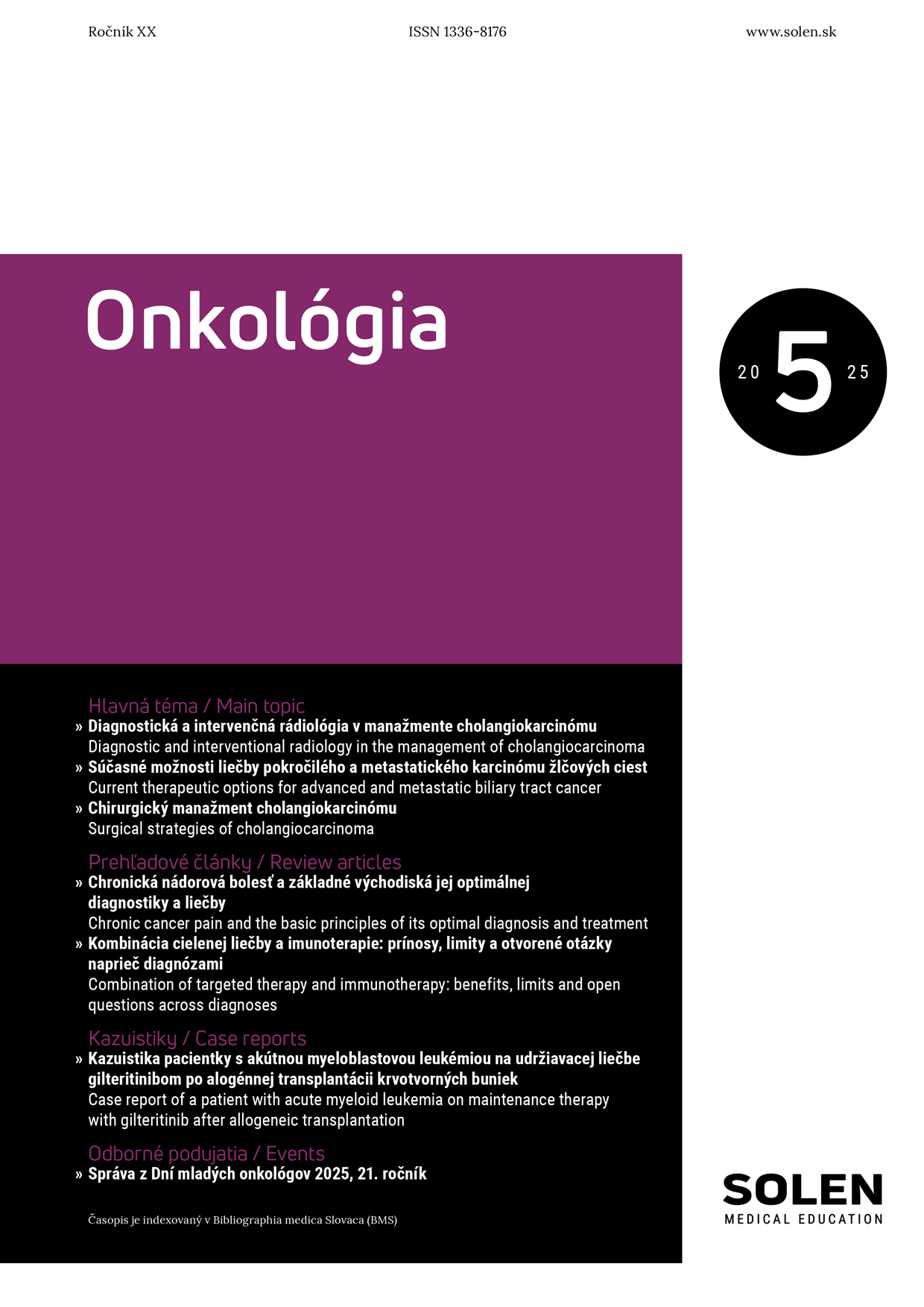Paliatívna medicína a liečba bolesti 1-2e/2018
Potřeby onkologicky nemocných dětí z perspektivy dětí a rodičů
Mgr. Andrea Filová, PhDr. Lucie Sikorová, Ph.D
Onkologické onemocnění v dětském věku významně modifikuje potřeby dětí, preference jednotlivých potřeb a rovněž i jejich naplnění. Cílem našeho šetření byla identifikace potřeb onkologicky nemocných dětí včetně jejich saturace/naplnění a vnímání těchto potřeb rodiči dětí s onkologickým onemocněním. Výzkumný soubor byl tvořen 50 dětmi a 70 rodiči, kteří byli hospitalizováni nebo přítomni na ambulanci ve vybraných zdravotnických zařízeních Olomouckého kraje bez uvedení konkretizace daného zařízení, a dále rodiči a dětmi sdružujícími se v nadačním fondu Šance onkoláčkům. Šetření probíhalo formou nestandardizovaného dotazníku, který mapoval biologické, psychosociální i spirituální potřeby. Pro statistické vyhodnocení byl použit mediánový test a dále neparametrické testy – chí-kvadrát test, Fisherův exaktní test a Wilcoxonův pořadový test pro dva výběry. Byly nalezeny nedostatky v identifikaci a saturaci potřeb dětí s onkologickým onemocněním ve všech dílčích oblastech potřeb. Rodiče a děti mají odlišný pohled z hlediska preference i saturace jednotlivých potřeb. Výsledky by měly vést ke zkvalitnění ošetřovatelské péče a především k uspokojování nalezených deficitních potřeb onkologicky nemocných dětí.
Kľúčové slová: děti, rodiče, onkologické onemocnění, potřeby
The needs of children with cancer – A view from the perspective of the children and the parents
Infantile oncological illnesses significantly modify the needs of children, the preference of the individual needs as well as their fulfillment. The aim of our analysis was the identification of the needs of ontological ill children including their saturation/fulfillment and the perception of these needs through the eyes of parents with ontological ill children. The research group consisted of 50 children and 70 parents, who were hospitalized or present at the outpatients’ department in selected health care institutions of the Olomouc region without a concretization of the given facility. In addition, the group consisted of parents and children, who are united in the fond Šance onkoláčkům (Give ontological ill children a chance). The survey was conducted with a non-standardized questionnaire, which mapped the biological, psychosocial and spiritual needs. For the statistical evaluation, we used a median text and paramedic tests – the Chi-squared test, Fischer’s exact test and the Wilcoxon rank text for two selections. In our research, we have found insufficiencies in the identification and saturation of the needs of children with ontological illnesses in all subdomains of needs. The parents and the children have different views from their perspective of preference and saturation of the particular needs. The results should lead to an improvement in the quality of the health care and mainly to the satisfaction of the needs of ontological children, which are according to our research lacking.

















